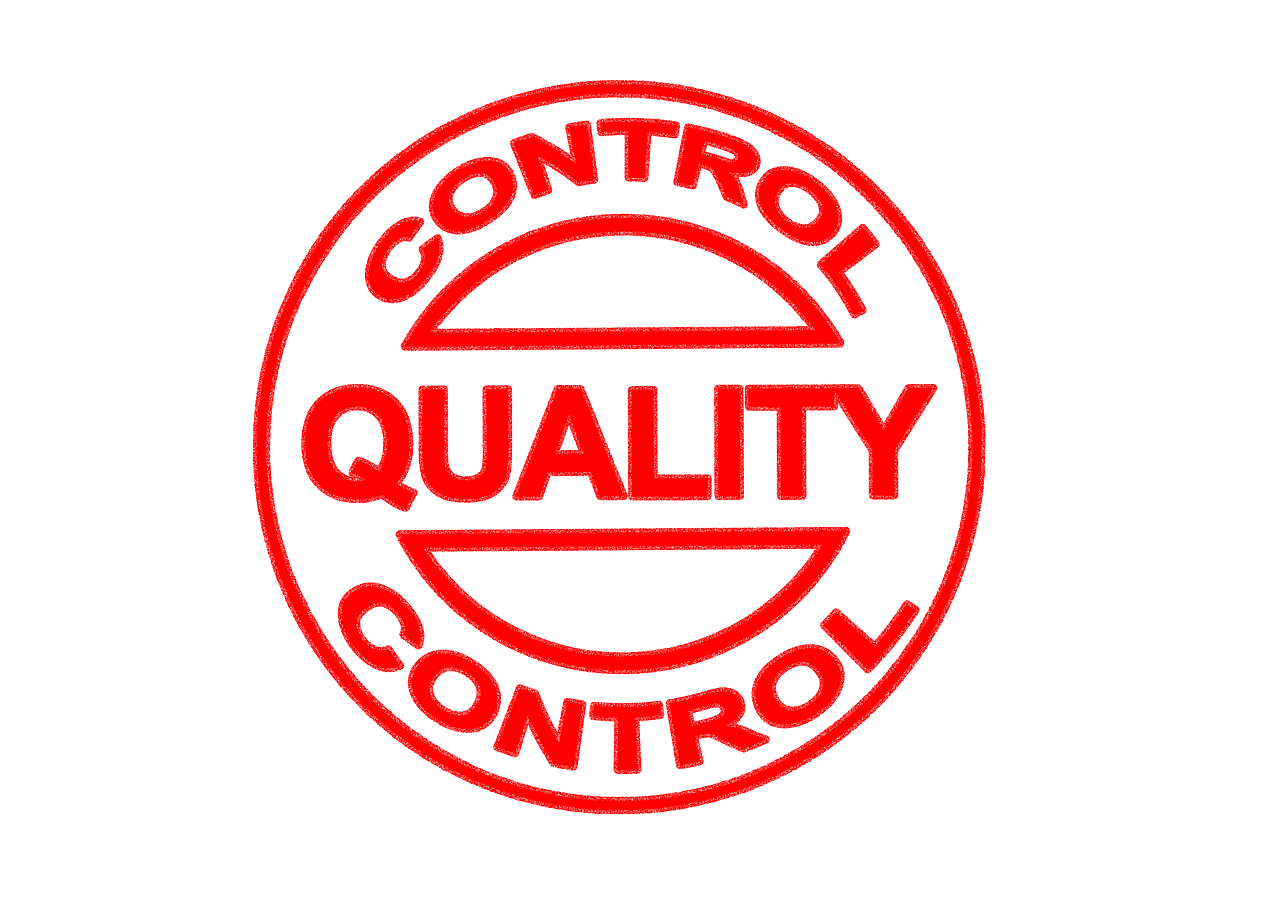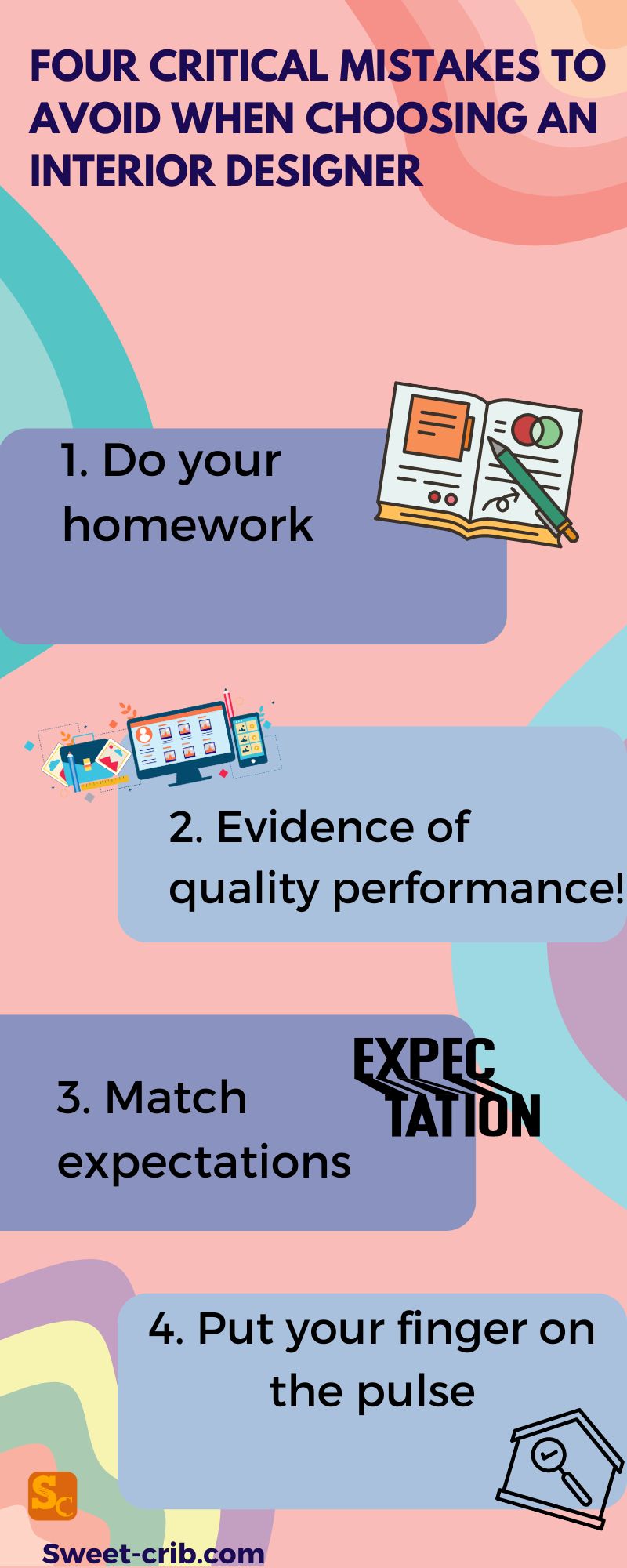Mistakes To Avoid When Choosing An Interior Designer.
And here we are again at Sweet Blog, the sweetest blog online.
The place that connects all fans of the 'home concept.'
Today, in response to numerous requests from our valued readers, we will share some invaluable tips to help you steer clear of critical mistakes when choosing an interior designer for your home. Your role in this process is crucial, and we're here to guide you every step of the way.
The British designer Margaret Oscar once said:
"Designers are meant to be loved, not to be understood."
Powerful. Isn't it?
With such a quote, it is pretty clear why some interaction difficulties may arise with designers during collaborative work processes. For instance, a designer may have a different vision for the space than the homeowner, leading to disagreements and misunderstandings. Or, the designer may use technical jargon that the homeowner doesn't understand, making it difficult for them to fully grasp the design concept.
Although it is well known that dealing with professionals of any kind can be quite challenging, those characterized by a "free spirit" and excessive creativity, such as designers of various types, may cause more communication difficulties with clients than with "other" professionals.
In the context of interior design, a 'Free spirit' is a term often used to describe designers who are not bound by traditional design norms. They tend to think outside the box and follow their creative instincts, which can sometimes lead to unique and innovative designs.
"Free Spirit" will tell you precisely what he thinks without filters of politically correct. But with that being said, he is usually quite kind and sensitive to his surroundings.
In light of the above, it's important to understand that contractual conduct can be quite challenging when it comes to designers of various types. Their point of view may seem 'Different' and 'Unstable,' but it's rooted in their passion for design. Even if you - The customer who pays good money and demands a specific service - set certain requirements, don't be surprised if your instructions are not thoroughly followed. It's not about underestimating your understanding, but about the sensitivity and complexity of design matters.
In this article, we will provide you with practical tips on what you must do before choosing a designer for your home. We will also highlight common mistakes that homeowners often make when working with a designer, and how to avoid them. This information will empower you to make informed decisions and ensure a smooth and successful design process.
As always, later in the article, there will be a refreshing infographic presentation and a video summarizing its content for you.
'Mistakes To Avoid When Choosing An Interior Designer - Interior Design No-No's All Decorators Can Agree On.'
Hop on!
Table of Contents
1. Do Your Homework.
Benjamin Franklin once said:
"by failing to prepare, you are preparing to fail."
The importance of advanced preparation for life's challenges is intuitively understood. You don't have to be a rocket scientist to figure it out. The more thoroughly you prepare, the significantly better your performance will be.
And that's precisely the case with our article's topic - Avoiding Mistakes when Choosing a Home Designer.
One of the main reasons for misunderstandings in the client-designer relationship is the client's lack of orientation in the professional field. However, your role is crucial in this relationship. Therefore, it's highly recommended to thoroughly familiarize yourself with the area for which you are hiring. This will not only enhance your understanding but also strengthen your partnership with the designer.
It's crucial to feel empowered in the design process. You should be 100 percent sure of your goals and how you want your house to look and feel at the end. This clarity will not only guide your decisions but also ensure that your vision is accurately translated into the design.
Indeed, there is room for doubts and hesitations, but only before hiring the designer - Contact an interior designer only when you have a solid plan, with no room for misunderstandings, Since as mentioned above, any hesitation and doubt on your part will result in the designer deciding things for you, ultimately leading to unnecessary frustration.
And by the way, No need to panic. Our recommendation to be prepared before contacting the designer does not require you to become a certified expert in the field of interior design. First, all that is needed is to focus on the procedure's outcome - what would you consider a success. And then to dive in a bit and enrich your knowledge regarding the field of interior design, something that, on the one hand, will grant you more practical knowledge and improve your expertise on the subject, and on the other hand, will help you create a common professional language with your designer later on.
"Okay, fine, but where do I get the information from?" you may be asking.
Well, everywhere: starting from Googling it, through reading about it on social media/forums/consulting with friends and family, and ending (for the advanced ones among you) in examining the professional literature in the field.
It's a pretty simple task whose only purpose is to get you ready for your first meeting with your designer, which, as mentioned above, will spot right from the start if you are one of those who don't have a green idea about what they are talking about and your house is nothing more than another "playground for his artistic creativity" And your only role is to keeps the cash flowing Or, this time he is facing someone who knows exactly what he wants, and he better implements your requests precisely.
With that being said, let us note again - we have no intention to diss any designers. We actually quite like them. Our sole purpose is to describe a natural phenomenon that characterizes professionals with a "free spirit." And if you are one of those who want their Instructions to be carried out precisely - They are probably not the one for you.

Don't be lazy. Sit back and read about the topic
So, in conclusion, the first mistake to avoid when choosing an interior designer is arriving unprepared.
2. Evidence Of Quality Performance.
Arnold H Glasow once said:
"The fewer the facts, the stronger the opinion."
As in many other areas of life, for intuitively well-understood reasons, it's highly recommended to give significant weight to actual evidence over opinions or hypotheses. One doesn't have to be a rocket scientist to figure this out - And this is more than relevant to our topic.
Once you've properly followed the instructions mentioned in paragraph one and reached the stage where you start looking for real designers for your home, it's time to put aside your niceties and start demanding proof.
Credentials, portfolios, projects carried out in real physical homes, past clients you can talk to - basically anything you can lay your hands on!
Nowadays, most of this ' evidence' can be easily obtained from the background check stage, even before making initial contact - A little internet research and you're good.
It goes without saying that even at the first face-to-face meeting with your potential future designer, it is highly recommended that you ask for portfolios concerning their professional abilities. This is not the time to be friendly and agreeable. On the contrary, you must be assertive.
Studies clearly show that agreeable people are not successful in various social and business fields compared to Unagreeable people. The reasons are pretty intuitively understood - While agreeable people tend to please others, disagreeable people will be concerned with achieving their goals, regardless of how the other party feels. You may like it and may not, but it cannot be argued that it helps clarify your positions.

Don't be shy - get the information you need!
It follows then that the second mistake to avoid when hiring a designer for your home is not thoroughly doing background checks.
3. Match expectations.
Napoleon Bonaparte once said:
"An order that can be misunderstood will undoubtedly Become one."
After finishing your homework and conducting a CIA background check on your designer, you've eventually- thank god - Chosen one - Now it's time for the most crucial part - Matching expectations.
When working with a home designer, you cannot underestimate the importance of coordinating expectations in advance. It's what will make or break you.
As briefly mentioned in paragraph one, Due to their tendency to take free initiative, you must sit down with your designer and clearly explain how you envision your home design process and its results. It would be best if you did not leave the slightest place for misunderstandings.
And how do you avoid such misunderstandings? Exactly - By clear instructions and guidelines.
Set expectations, and you won't find yourself badly surprised.
By the way, Working with computer simulation software is highly recommended, allowing you to point at the screen and say - "This is exactly what I want!".
So, the third mistake to avoid when choosing an interior designer is avoiding a thorough match of expectations.
Don't do that!
4. Put Your Finger On The Pulse.
It's one thing to take care of excellent preliminary preparation (doing homework/background check/match expectations), but it's a whole other thing to ensure good execution.
Among other things, home design is characterized by a structure of stages, when often, one thing is built on something that preceded it, And so it progresses accordingly. Think of it as a design cogwheel.
Therefore, to prevent irreversible errors, it's crucial to maintain constant vigilance at all stages of your design process. Remember, a delay in identifying a mistake could potentially lead to another, possibly irreversible, one.
"So what to do?" You must be asking.
One of the key responsibilities during your home design process is to monitor your interior designer's work. It's essential to ensure that all your instructions are followed promptly. This active role not only keeps the project on track but also fosters a collaborative relationship with your designer.
Being present in your home design process doesn't mean you should constantly pester your designer with questions or comments. Instead, maintain a balanced approach. Be in the background, making your presence felt, but not interfering with the designer's work.

Come to check from time to time
By doing so, you will minimize the chance of unexpected faults occurring and ensure that the work is not carried out in a way that is not precisely compatible with your requirements.

In conclusion, these were the four critical mistakes to avoid when choosing an interior designer, and we hope that we have helped you to some extent if you are searching for one.
And for further expansion on the subject, you can always read our article - The Four "Do's And Don'ts" Before Hiring A Handyman - although it is not the exact same topic, it will undoubtedly help you to a certain extent.
And if you've made it this far, don't forget to jump into our collections page.
What are you waiting for?
For more fascinating and informative home design articles, visit our sweet blog and subscribe to our sweet community. And if you have any more questions/comments, please feel free to reach out.


Share and get 15% off!
Simply share this product on one of the following social networks and you will unlock 15% off!